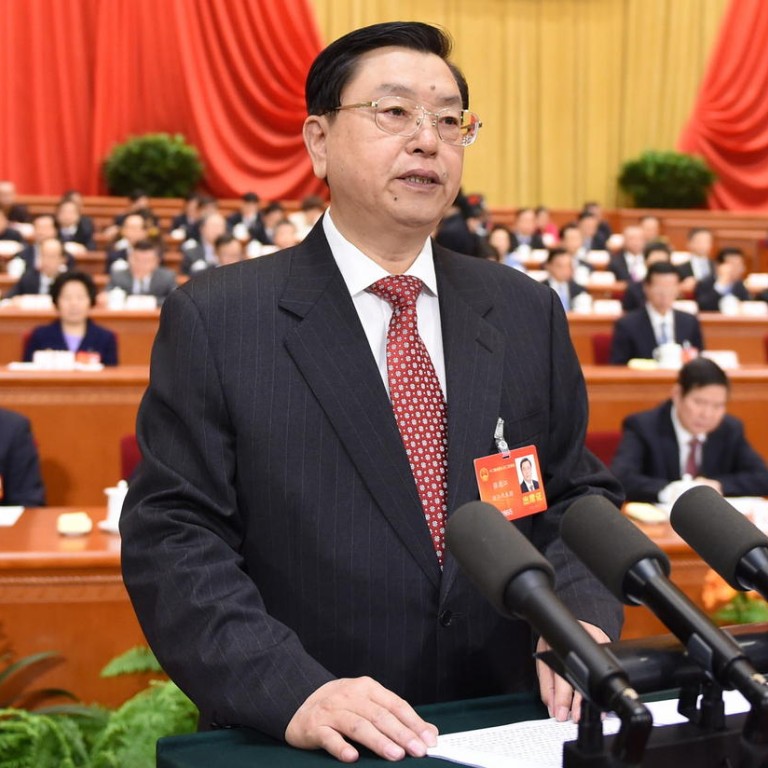
Pollution and food safety to top legal agenda this year, Zhang Dejiang tells NPC delegates
NPC chairman Zhang Dejiang tells delegates it is time to address growing public concerns over mounting threats to their health
China's top lawmaker vowed yesterday to push forward legislation in areas of key public concern, including pollution and oversight of officials' conduct.

Zhang, who ranks third in the all-powerful Politburo Standing Committee, said combatting pollution would be one of the top priorities to be addressed this year by the NPC, through legislation and oversight, as public dissatisfaction over environmental degradation in China intensified.
"We will revise the Environmental Protection Law and the Air Pollution Prevention and Control Law to improve environmental protection and management so that emissions of all pollutants are strictly supervised," Zhang said.
"[We will] enforce the strictest systems for protecting the environment by controlling pollution at the source, holding polluters accountable and ensuring that they compensate for the damage they cause," he said.
The NPC also plans to revise the Food Safety Law, another leading cause of public concern. Li had earlier vowed to apply the strictest possible oversight and accountability to prevent food contamination.
Zhang promised to strengthen oversight of the State Council, the Supreme People's Court and Supreme People's Procuratorate (the state prosecutor's office) in the coming year.
"We need to focus oversight on major reform, development and stability issues and on sensitive issues of particular concern to the people," said Zhang.
On other issues, the NPC will also hear and deliberate on reports from the State Council on deepening reforms and strengthening financial regulation to lessen financial risks.
The NPC has long been regarded as a "rubber stamp" body to the Communist Party and has limited powers over the central and provincial governments.
A recent corruption scandal in Hengyang , Hunan province, further eroded public confidence in the legislative body after 518 of the 527 members of the city's people's congress were accused of accepting bribes totalling more 110 million yuan (HK$139 million) in a cash-for-votes scandal, local media reported in December.
"We are keenly aware that the work of the [NPC] Standing Committee still falls well short of the expectations of the people and the demands of deputies," Zhang said. "[The Hengyang case] exerted a destructive influence and was a stern warning. We must strengthen the organisation and leadership of the election of NPC deputies … uphold the authority and sanctity of the system of people's congresses … and of the constitution and laws."
Some internet users praised Zhang's reports as responsive, while other said such problems were endemic.
"The NPC has responded to the public's concerns, but it lacks the capacity to solve the problems. The same problems will be raised again next year. The Hengyang scandal matters little as China has no real elections," said Zhang Xuezhong, a law professor who was fired by a university last year for his criticism of leaders.
